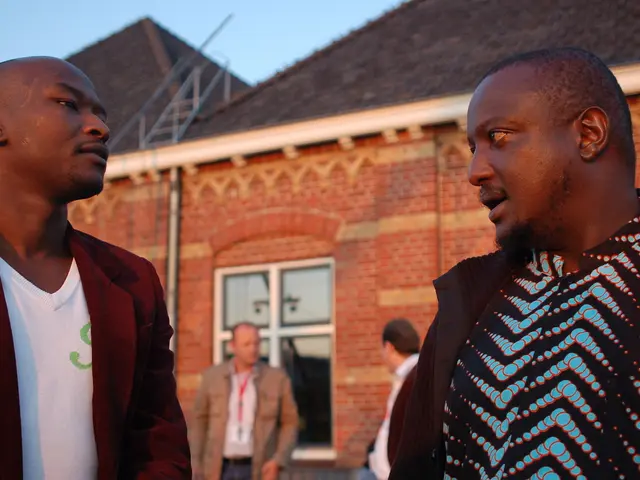Countries Pioneering in Sustainable Energy and Green Technology Advancements by 2025 in Africa
In the global pursuit of a sustainable future, Africa is making significant strides in the adoption of renewable energy technologies. The continent, home to 30% of the world's essential minerals for renewable technologies and 60% of the world's best solar resources, is poised to become a powerhouse in the renewable energy sector.
South Africa, a frontrunner in this movement, is spearheading efforts through the REIPPPP program, upgrades to coal-based power plants, and investments in offshore wind farms. The country is also emerging as a leader in green hydrogen production, with projects underway in the Northern Cape to utilize solar and wind energy to produce green hydrogen for domestic use and export.
Kenya, another African powerhouse, has made significant investments in off-grid solar and mini-grid solutions, providing energy access to rural areas. The country's renewable energy focus includes the Olkaria Geothermal Power Plant (over 700 MW) and the Lake Turkana Wind Power Project (310 MW).
Zimbabwe is accelerating its renewable energy efforts, with a focus on solar, wind, and hydropower as it works to overcome energy shortages and environmental challenges.
Egypt's renewable energy capacity is expanding through projects like the Benban Solar Park (1.65 GW) and Gabal El-Zeit Wind Farm (580 MW), with plans for further expansion. The country has also entered into agreements with international partners to develop a green hydrogen hub, capitalizing on its solar and wind potential for sustainable hydrogen production.
Ethiopia, a leader in hydropower, is expanding its geothermal, wind, and solar potential, making it a key player in Africa's renewable energy landscape.
In rural areas, mini-grids and stand-alone systems, mostly solar-based, are the most viable solutions for providing electricity to over 80% of the electricity-deprived population. Countries such as Ghana, Kenya, and Rwanda are on track for full access to electricity by 2030.
Tunisia is making significant strides in solar and wind energy, demonstrating its commitment to sustainable development and energy independence. Morocco's renewable energy initiatives include the Noor Ouarzazate Solar Complex (580 MW), various wind farms, and a focus on green hydrogen for export.
Africa accounts for less than 3% of the world's energy-related carbon dioxide (CO2) emissions to date and has the lowest emissions per capita of any region. As of now, 600 million people, or 43% of the total population, lack access to electricity, most of them in sub-Saharan Africa. However, this is changing, with countries such as Nigeria, Africa's largest economy, showing promising signs of renewable energy investment, especially in solar power and mini-grid solutions.
In 2021, 55.5% of Africa's final energy consumption came from renewable sources, outpacing Europe, North America, and Asia. As of May 2022, countries representing more than 70% of global CO2 emissions have committed to reach net zero emissions by around mid-century, with 12 African countries representing over 40% of the continent's total CO2 emissions among them.
Universal access to affordable electricity in Africa, achieved by 2030, requires bringing connections to 90 million people a year, triple the rate of recent years. This is a challenging but achievable goal, given the commitment and progress being made across the continent.
In conclusion, Africa is not just a part of the solution to the global energy crisis; it is becoming a significant player in the renewable energy revolution. The continent's abundant solar resources, combined with its determination to overcome energy shortages and environmental challenges, promise a bright, sustainable future for all Africans.
Read also:
- Accident at Rodalben Results in Injuries; Geoskop Area near Kusel Affected After Stormy Weather
- Latest Updates in Autonomous Vehicle Sphere: Qualcomm, BMW, Waymo, Carteav, AEye, Flasheye, Pony.ai, Mowasalat, Valeo, Momenta, and NHTSA under the spotlight
- Exploring the Underlying Emotions and Mental Factors Contributing to Infidelity Among Women
- Interview during summertime with Friedrich Merz, discussing fact-checked claims on sick days and working hours








